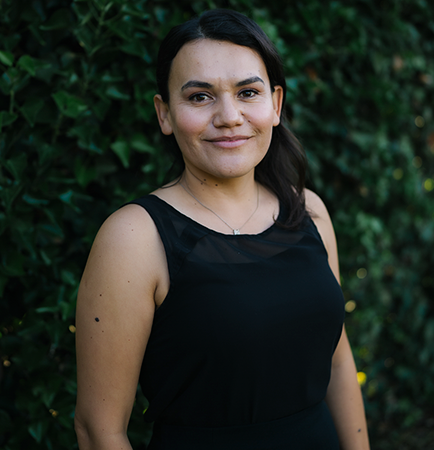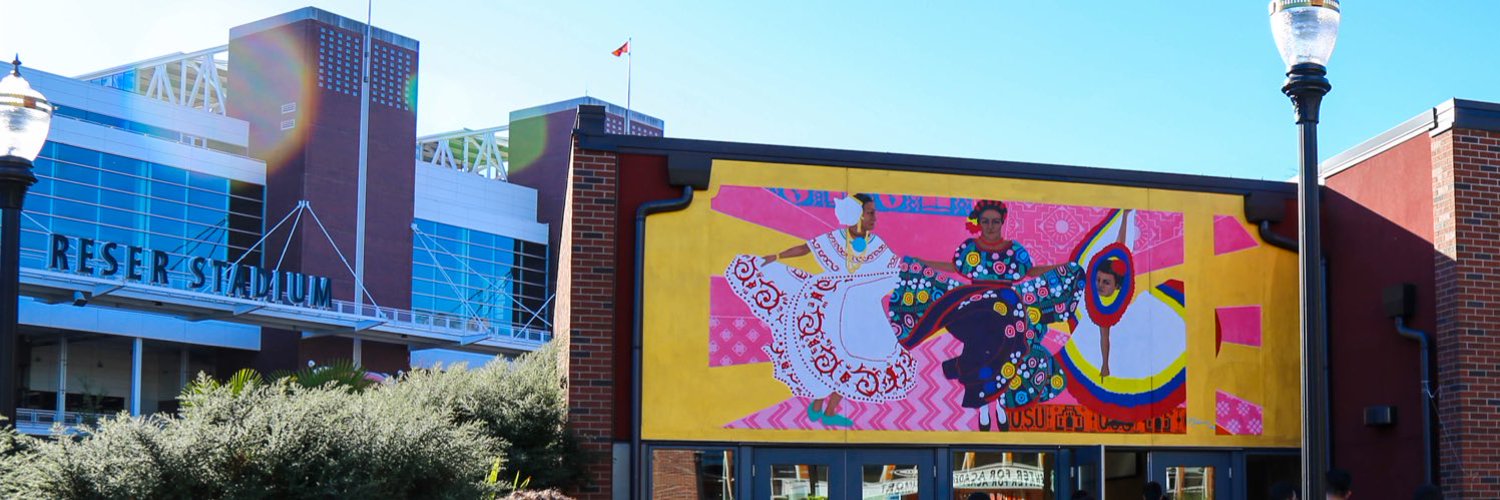First-generation student upholds her passion for access and equity and drives change in education.
By Jordan Friedman
As a first-generation student in the U.S. from Mexico, Arlyn Moreno Luna, '13, MPP '15, knows firsthand how challenging college admissions can be for underrepresented learners. Her high school had designated her a “non-college student” and offered no guidance on how to prepare for or apply to undergraduate programs.
But Moreno Luna remained determined to further her education—and she did just that. She enrolled at a local community college and eventually transferred to Oregon State, where she earned an Honor’s Bachelor of Science degree in Bioresource Research followed by a Master of Public Policy. After earning a second master’s degree from the University of California, Berkeley, she’s now a doctoral candidate in the critical studies of race, class and gender at the Berkeley School of Education.
“My life experiences have shaped and continue to influence my commitment to serve historically underrepresented students,” says Moreno Luna, who migrated to the U.S. as a teenager and started in a new educational system with no knowledge of English.

During her undergraduate years, Moreno Luna’s own experiences inspired her to start mentoring and helping underrepresented students on their own paths to higher education. Now, her doctoral research at Berkeley takes her passion a step further. Moreno Luna is exploring educational access and equity in higher education for first-generation, low-income and traditionally underrepresented students.
She remains dedicated to serving these populations through her continued involvement in the OSU and Berkeley communities. This commitment to educational access and equity led to her nomination this year for OSU’s Diversity, Equity, and Inclusion Alumni Legacy Award. The honor, founded in 2020 in partnership with the OSU Alumni Association, recognizes alumni who have demonstrated a commitment to social justice and DEI.
Breaking barriers to higher education
Moreno Luna didn’t have the information or support she needed when exploring college as an option. So today, she’s breaking down this barrier for other underrepresented students as they navigate the complexities of higher education.
“In the U.S.,” Moreno Luna says, “low-income, Black and brown students do not have the same access to higher education. Also, for those who make it into college, they have lower chances of successfully receiving a degree.”
According to Moreno Luna’s nomination for the Legacy Award, one of her most significant contributions to OSU was her role in developing Mi Familia Weekend, an event that started in 2012. Hundreds of Latinx students’ families visit campus to learn about college life and other higher education opportunities. Moreno Luna’s knowledge and experiences helped inspire its creation, with the goal of making campus accessible to Latinx families.
Also, as the Latino Representative of Minorities in Agriculture, Natural Resources and Related Sciences (MANRRS) for OSU’s chapter in 2012, Moreno Luna applied for (and received) grant funding to plan a biannual event that brings students from Rosemary Anderson High School to OSU to learn about applying to college.
Currently as an alumna, Moreno Luna continues to give back to her alma mater. She helped create a newly reformed Latinx alumni network and is now vice chair of Vamos OSU, affording her the opportunity to plan and host workshops for OSU undergrads considering graduate school.
On Feb. 8, 2023, Moreno Luna will moderate a virtual Ask Alumni panel hosted by Vamos OSU. Titled “So you got into grad school. Now what?” the panel will help students prepare to choose the right graduate program and get advice on post-graduation job prospects.
Research to drive change in education
Moreno Luna upholds her passion for access and equity in higher education not only through her mentorship but also her scholarly work.
“Although [Moreno Luna] was not perceived by teachers as a student who will go to college, she developed a strong desire to conduct research that provides systematic evidence that informs policymaking to promote immigrant and student equity,” wrote Wanda Crannell, an advisor and instructor for bioresource research at OSU, in Moreno Luna’s nomination for the Legacy Award.
Alongside her research, though, Moreno Luna serves in a multitude of leadership roles at Berkeley to promote educational access and equity. To name two of many current examples, Moreno Luna is co-chair for the Graduate Association of Latinx Students and a graduate mentor for the From Day One program
The award nomination from Crannell reads, “I believe Arlyn Moreno Luna’s commitment to social justice will continue through her doctoral program and beyond."

